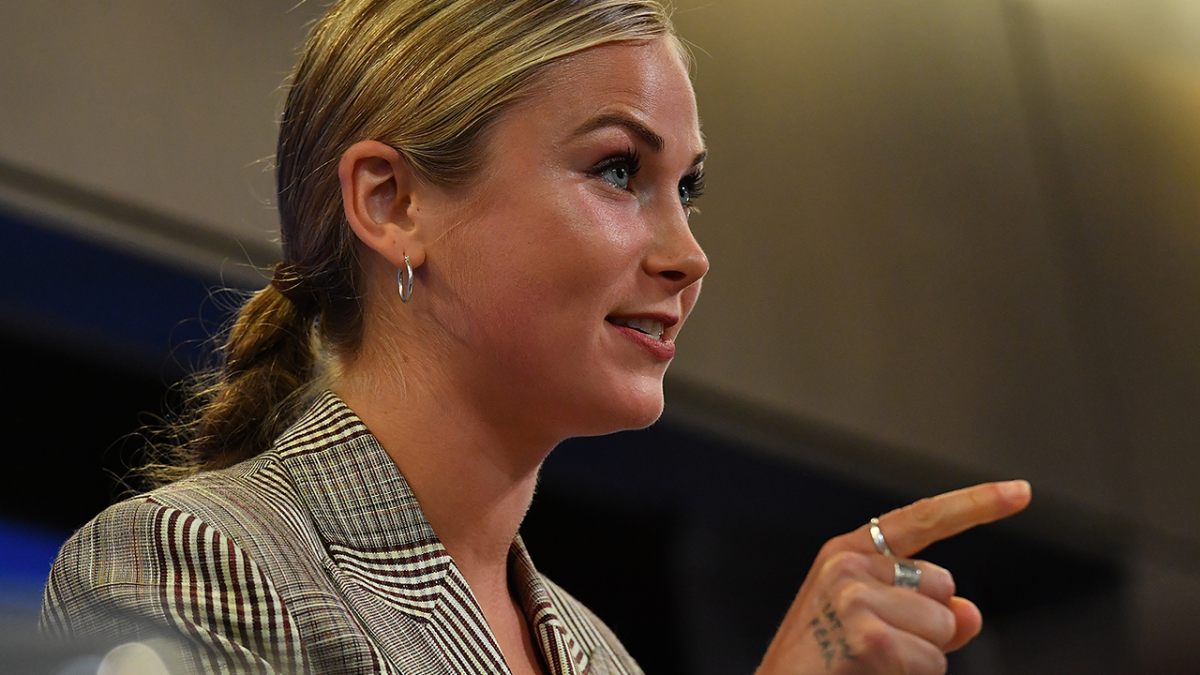
So, it’s 2021 and according to Bumble’s Modern Womanhood Report three quarters of young people in Australia are still confused about consent and what constitutes a “yes” and a “no”. We are almost two years into this conversation, one that is now a mainstream topic, and here we are, a small amount of progress and a whole lot of bewilderment.
Bumble, the women-first dating and social networking app dedicated to empowering women and advancing gender equality, recently asked young Australians their opinions on what matters to them.
I sat on the app’s Modern Womanhood Virtual panel alongside a group of incredible women: First Nations re-educator Alicia Johnson, fat positivity and body acceptance advocate April Hélène-Horton, and APAC Communications Director at Bumble, Lucille McCart.
We dived into the topics like green flags in relationships, body confidence and self-esteem, how feminism and racism intersect, and of course, women’s safety and consent.
In a year that has seen milkshakes used as a sex education teaching tool, it is little wonder that three quarters of Aussies still believe that more needs to be done to educate Australians on affirmative consent — with Gen Z the most likely to say so (according to the Bumble report).
My belief is that underpinning all this confusion is a fundamentally structural issue. We have nine jurisdictions in Australia — if you include the Commonwealth. That means we have nine very different definitions of consent of sexual intercourse, of sexual assault, of what constitutes the age to consent to sex and what constitutes the age of a child.
Importantly, some legislation contains specific language around penetration that completely neglects to include the LBGTQIA community.
In my opinion, it’s no wonder there is confusion.
The fact that we have nine different definitions, in an environment where they should be absolute concepts, where there is no possibility for ambiguity or grey area, how can we possibly hope to have a solid concept of consent and possibly teach this to young people in schools, in the community and in culture?
By having a single unified definition of these critical issues — of consent, sexual intercourse, sexual assault, and the age of consent, we can start to wade through the confusion and start the wheels of change.
By defining these structures and taking away any ambiguity we can start to influence culture.
Then, and only then, can we talk about enthusiastic consent. About having a conversation with your partner to ensure that they want to be there and that only an enthusiastic yes is enough to continue.
The Bumble event also dived into the “green flags” in relationships. It came after their research found only two in five of young people say they know how to spot red flags in dating.
Green flags are those indicators of what constitutes a healthy relationship. I will be the first to put up my hand and say that my life experience has meant that I am often only aware of the red flags, but thanks to my current relationship I am slowly understanding the green flags.
View this post on Instagram
I’m 26 years old, and yes, I know my experience isn’t the norm, but that is something that made me think more needs to be done here to educate on healthy relationships.
I am still getting used to my partner expressing vicarious joy when I share my successes — that sense of him being totally happy for me — and vice versa.
And, I must admit that I still get taken aback when my partner is able to say that he loves me, even in a moment when I’ve done something wrong. There is something so powerful about having the absolute support of someone else — knowing that they have your back.
View this post on Instagram
Feeling heard, supported and understood are all green flags that I am coming to see as important for me. Qualities that I believe are absolutely connected to the conversation around consent. Values such as respect and equality are intrinsically connected to consent, and are the foundations of a healthy relationship.
So, I encourage all young people to keep talking, especially young women. Of being heard – even if it means we are described as “loud” because change will only come if we keep this conversation happening.
I like to think that by not giving our leaders a choice, they will have to listen.
Grace Tame is an activist and advocate for survivors of sexual assault. She was named 2021 Australian of the Year for her work spearheading the #LetHerSpeak campaign, aimed at overturning the gag law on survivors of sexual assault. You can follow her on Instagram HERE, and on Twitter HERE.



